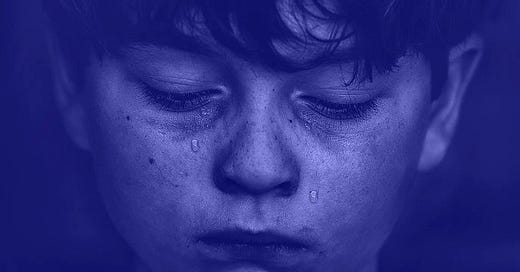The Transformative Power of Collective Suffering and Hope
The Tears of Things
Hope must transcend individual experience and become a cosmic hope rooted in human solidarity. Maybe hope needs to be cosmic hope to be hope at all. [1] This shift in perspective reminds us that hope is not merely a personal sentiment but a universal force that connects all beings in their collective struggles. It is only when we open ourselves to this expansive hope that we can begin to bear the weight of suffering together, understanding that we are part of a larger, interconnected human journey. This type of hope isn’t simply for the alleviation of our own pain but for the healing and restoration of all who suffer, past, present, and future (Romans 8:24-25).
Pain and suffering are more bearable when shared collectively, rather than isolated. Maybe pain needs to be borne together, and for all time; it is very hard to bear alone, or in the moment. [1] This profound truth emphasizes the importance of community and solidarity in the face of suffering. Rather than struggling alone with our grief, we are called to unite with others who also bear the weight of life’s difficulties. The shared experience of pain can become a source of strength, offering solace and resilience when we acknowledge that our suffering is part of the larger human condition (2 Corinthians 1:3-4).
True solidarity with human suffering is more meaningful than a focus on innocence or heroism. I would call both of them prophets and harbingers of a much-needed future Christianity. [1] The lives of those who seek deep identification with human suffering, such as Simone Weil and Saint Albert Chmielowski, demonstrate that true compassion lies not in heroic actions or in the pursuit of personal purity, but in the quiet, consistent presence with those who suffer. Their lives teach us that deep solidarity is the highest form of love, a love that is both humble and transformative, transcending superficial ideals of martyrdom or perfection (Matthew 25:40).
Religious practices like almsgiving, fasting, and prayer are acts of solidarity, not attempts to manipulate divine outcomes. These practices are designed to connect us with others in a profound way, rather than to ask for personal favors from God. The three universal spiritual practices of almsgiving, fasting, and prayer are ways of seeking such union. [1] By viewing these actions as expressions of our shared humanity, we begin to move away from transactional religious behaviors and instead focus on the deeper purpose of unity with the divine and with each other (Matthew 6:1-18).
The power of lamentation and grief is transformative, softening the heart towards compassion and prayer. All true prophets, like Ezekiel, eat of the scroll of 'lamentations, weeping, and woe,' and only in time does it become 'sweet as honey' because of its enlightening effects. [1] The act of lamentation does not keep us trapped in sorrow but opens the door to deeper wisdom and insight. As we allow ourselves to fully experience grief, we find that it softens our hearts, leading us to compassion and a more profound sense of connection to the suffering of others. This process, though painful, is essential for spiritual growth and transformation (Psalm 34:18).
Anger, often misattributed to God, is a human emotion that must be transformed rather than projected. Lamentations ends with a final warning against 'an anger that knows no limit,' which too often we have confused for God’s anger. [1] It is crucial to recognize that our own anger, when unchecked, can project onto God and others, distorting our perception of divine justice. True spiritual maturity involves confronting our own anger and transforming it, rather than allowing it to fuel endless cycles of resentment. By doing so, we create space for healing and understanding, both within ourselves and in our relationships with others (Ephesians 4:26-27, James 1:19-20).
Prophetic transformation requires embracing stages of purgation, illumination, and union, mirroring the journey of exile and return. These people are the change agents for culture, paralleling the classic three stages of purgation, illumination, and union. [1] The journey of transformation outlined in the prophetic tradition is a powerful model for personal and collective growth. It involves passing through times of hardship and confusion (purgation), experiencing moments of clarity and insight (illumination), and ultimately finding peace and unity (union). This cyclical process reflects the necessary movements for deep, lasting change, both within ourselves and in the world around us (Romans 5:3-5, James 1:2-4).
[1] Richard Rohr, The Tears of Things




